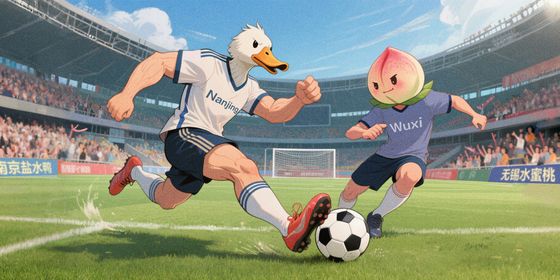Netizens have identified a condition worse than social anxiety—“Social NB Disorder”
China’s netizens have long lamented their own social anxiety on social media platforms WeChat and the comment sections of Weibo, with embarrassing stories drawing online onlookers addicted to stories of toe-curling “social death (社会性死亡 shèhuìxìng sǐwáng).”
Public speaking, running into a senior work acquaintance on the subway, or being forced to take part in networking events full of strangers can all trigger their social anxiety disorder (SAD), known as 社交恐惧症 (shèjiāo kǒngjùzhèng) or simply 社恐 shèkǒng). “I am embarrassed to the point of gripping the ground with my toes (我尴尬到脚趾抓地 Wǒ gāngà dào jiǎozhǐ zhuādì),” they often say, or “I’m so embarrassed I could dig a hole big enough for a villa with my curled toes (我尴尬到用脚趾抠出一栋别墅 Wǒ gāngà dào yòng jiǎozhǐ kōuchū yí dòng biéshù).” Or even worse, “This is basically a public execution (这简直是公开处刑 Zhè jiǎnzhí shì gōngkāi chǔxíng).”
But some have managed to throw off the worries of the SAD crew, and can take any social situation in their stride, always confident, brisk, and chatty. While “Planet SAD dwellers (社恐星人 shèkǒngxīngrén)” are like fish out of water when unfamiliar faces surround them, these extroverts swim effortlessly in the ocean of social interactions. Yet they too, are considered defective by netizens, who wary of their strangely effortless ability to talk to anyone, claim these social butterflies have contracted “Social NB Disorder (社交牛逼症 shèjiāo niúbīzhèng).”
Chinese have for many years now used “牛逼 (niúbī)” (otherwise written as 牛B , or just NB, the initials of 牛逼), an obscenity, to express when something is shocking, impressive, or awesome. The term is said to be derived from 吹牛皮 (chuī niúpí, literally “blow cow skin”), a term used in dialects in northwest China, which means “to brag.” That term apparently comes from a time when people used leather rafts to travel along the Yellow River. Craftsman would inflate sheep or pig skin to float the rafts. Because of its large size and lack of fat, however, cow skin could not be used the same way, so the term “吹牛皮” emerged as a way to indicate exaggeration.
Online, those afflicted witn Social NB Disorder are said to exhibit a few common symptoms:
— "Indiscriminate chatting ability (无差别聊天 wúchābié liáotiān)." This presents as an unsettling willingness to converse with everyone they meet, and tendency to seamlessly insert themselves into any discussion.
— “Sense of central positioning (C 位存在感 C-wèi cúnzàigǎn).” The patient always manages to make themselves the center of attention in any crowd, no matter the occasion.
— “All-encompassing friend-making ability (全方位交友 quánfāngwèi jiāoyǒu).” They somehow become pals with everyone whose path they cross—security guards, couriers, and taxi drivers; you name it.
And finally, Social NB sufferers may experience consistent bouts of “extreme confidence (自信感爆棚 zìxìngǎn bàopéng),” where they appear to be totally self-assured and enjoy attracting the gaze of others.
Upon witnessing these social personalities, in action netizens gasp in jealously, admiration, and some trepidation: “This must be Social NB Disorder, right (可能这就是社交牛逼症吧 Kěnéng zhè jiùshì shèjiāo niúbīzhèng ba)?” But it’s also possible for those normally consumed by social anxiety to accidentally perform well in public, leading them to write, somewhat surprised: “Guys, it seems I may have caught Social NB Disorder (家人们,我好像有那个社交牛逼症 Jiārénmen, wǒ hǎoxiàng yǒu nàge shèjiāo niúbīzhèng).”
Netizens are always generous with praise for these “instinctive communicators (自来熟 zìlái shú),” even calling them the cream of “humankind (人类 rénlèi).” They may be said to have “High-Quality Human NB Disorder (人类高质量社交牛逼症 rénlèi gāo zhìliàng shèjiāo niúbīzhèng)” or reached the “ceiling of human social interaction (人类社交天花板 rénlèi shèjiāo tiānhuābǎn).”
As the term has become more widely used online, netizens have also begun to use it as a negative or sarcastic insult for those who try too hard in public, often embarrassing those around them. For example, one Weibo poster recounted that: “When my dad comes across a traffic jam, he will get out of the car and help the traffic police. He really seems to have that Social NB Disorder (我爸遇到路口堵车还会下车帮交警疏通,真的好像有那个社交牛逼症 Wǒ bà yùdào lùkǒu dǔchē háihuì xiàchē bāng jiāojǐng shūtōng, zhēnde hǎoxiàng yǒu nàge shèjiāo niúbīzhèng).”
Another commenter shares that, “My aunt chatted with a group of remote relatives and neighbors for a whole day at my grandparents’ place, and told me afterwards that she didn’t even know who any of them were. She seems to have caught that Social NB Disorder (我小姨在外婆家和一堆远房亲戚邻居聊了很久的天,然后回来跟我说她一个也不认识。她好像有那个社交牛逼症 Wǒ xiǎoyí zài wàipó jiā hé yì duī yuǎnfáng qīnqi línjū liáole hěnjiǔ de tiān, ránhòu huílai gēn wǒ shuō tā yí gè yě búrènshi. Tā hǎoxiàng yǒu nàge shèjiāo niúbīzhèng).”
For younger Chinese generations who have embraced pessimism, complain about being “corporate livestock,” and dream of “lying flat,” the propensity for the older generation to engage in conversation with strangers, or worse, actually seem to enjoy it, is frightening but also inspiring: “It turns out that older people are actually the ceiling of human social interaction (原来长辈才是人类社交天花板 Yuánlái zhǎngbèi cáishì rénlèi shèjiāo tiānhuābǎn).”
However, some have merely mastered the art of faking the symptoms of Social NB, and have what is labeled “extroverted social anxiety (外向型社恐 wàixiàngxíng shèkǒng).” Though they are easily embarrassed and fear rejection, they don a metaphorical NB mask and force themselves out into the world. Eventually, however, when the social gathering is over, they are left feeling drained, as if their “body is hollowed out (感觉身体被掏空 gǎnjué shēntǐ bèi tāokōng).”
Perhaps the first step on becoming socially NB is accepting that social anxiety is unavoidable. After all, as a popular slang saying goes, “As long as you are not embarrassed, it’s the others who will feel embarrassment (只要你不尴尬,尴尬的就是别人 Zhǐyào nǐ bù gāngà, gāngà de jiùshì biérén).”












